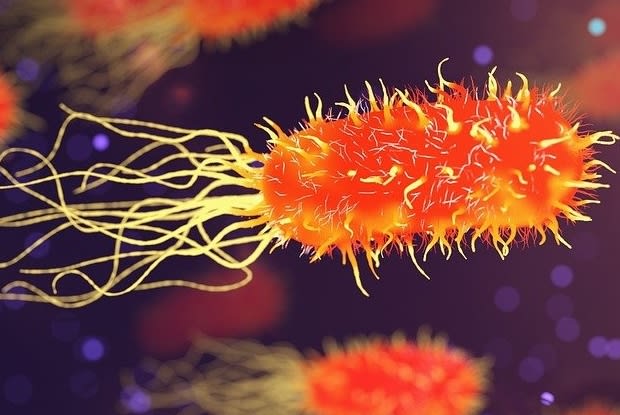Table of Contents
I. How Common is Traveler’s Diarrhea?
II. What Causes Traveler’s Diarrhea?
IV. Reducing Your Risk of Traveler’s Diarrhea
b. Fully Cooking Meat and Vegetables
c. Good Hand-Washing Practices
How Common is Traveler’s Diarrhea?
Traveler’s diarrhea is a digestive tract disorder that can cause loose stools, abdominal cramps, and vomiting. It is caused by eating or drinking contaminated food or water. For most people, traveler’s diarrhea isn’t severe and will go away on its own within a few days. However, your doctor may prescribe Xifaxan 550 mg if your symptoms persist. [1]
This gastrointestinal condition is very common, affecting around 10 million people around the world every year. [2] Traveler’s diarrhea is more likely to develop when traveling abroad because the body does not have immunity to local infectious agents. Traveler’s diarrhea often occurs in Central and South America, Mexico, Africa, and Southeast Asia. [1] Read on to learn more about the causes of traveler’s diarrhea and what you can do to reduce your risk of this unpleasant condition.
What Causes Traveler’s Diarrhea?
The Centers for Disease Control and Prevention (CDC) estimates that 80 percent of traveler’s diarrhea cases are caused by bacterial infections. The most common type of bacteria that causes traveler’s diarrhea is called E. coli (Escherichia coli). Most strains of E. coli are harmless and live in your gut without causing problems. The Shiga toxin-producing E. coli (STEC) is a harmful strain that can cause watery diarrhea, nausea, and fever. STEC infections are responsible for 265,000 infections in the United States a year. [3]
Traveler’s diarrhea primarily occurs from consuming contaminated foods, especially raw or undercooked meat products. Cross-contamination during food preparation, contaminated kitchen utensils and surfaces, and raw milk can also lead to infection. Additionally, a growing number of infections are caused by fruits and vegetables that may have been contaminated due to contact with feces from farm animals. The STEC strain is known to survive for months in manure, ponds, and wells, which makes waterborne transmission likely to occur. [3] If you want to save money on your Xifaxan cost, you can purchase your prescription through a Canadian online pharmacy like RxConnected. Besides risk factors associated with traveling, certain groups of people have a greater risk of traveler’s diarrhea. Risk factors for traveler’s diarrhea include: Because harmful bacteria can contaminate water, you should always look for ways to purify your water supply when traveling abroad. Avoid drinking tap water directly and choose bottled water whenever possible. Even when brushing your teeth, bottled water is ideal. If you don’t have access to bottled water, tap water can be purified by boiling it. Iodine tablets can also purify tap water, but it is not reliable for killing certain types of bacteria. [2] Make sure the food you eat is fully cooked and the fruits you consume are freshly peeled. To reduce the risk of developing traveler’s diarrhea, meat and seafood should never be undercooked. Open buffets are risky because the food is typically left out for a long time. If the fruits and vegetables are washed with contaminated water, an infection can also occur. [2] E. coli can spread from the feces of people and animals. You may know to wash your hands after using the toilet or changing a diaper, but bacteria from feces can also spread to your hands when you are handling raw meat. Harmful bacteria can spread through coughs and sneezes as well. To reduce the risk of transmission, it is important to practice regular and proper handwashing. According to the CDC, communities that are educated on handwashing experience a 58 percent reduction in diarrhea-related illnesses. [4] If you develop traveler’s diarrhea and symptoms do not go away within two days, you may need to see a doctor. Symptoms such as frequent diarrhea and vomiting can increase the risk of dehydration. If you become dehydrated, it is important to seek medical help. Additionally, speak with your physician if your abdominal or rectal pain becomes severe, if you have a high fever, or if your stool is bloody. Antibiotics like Xifaxan generic can help reduce bacterial growth in the intestines and improve symptoms. [1] The content in this article is intended for informational purposes only. This website does not provide medical advice. In all circumstances, you should always seek the advice of your physician and/or other qualified health professionals(s) for drug, medical condition, or treatment advice. The content provided on this website is not a substitute for professional medical advice, diagnosis, or treatment.
Risk Factors
Reducing Your Risk of Traveler’s Diarrhea
a. Purifying Water

b. Fully Cooking Meat and Vegetables
c. Good Hand-Washing Practices

When to See a Doctor
